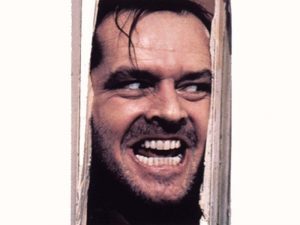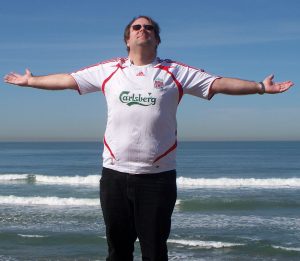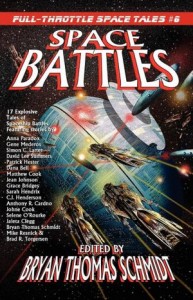 I was first diagnosed in 3rd grade at the world-renowned Meninger’s Clinic in Topeka, Kansas: Attention Deficit Hyperactivity Disorder. For my physician and nurse parents, this was a huge relief. Finally an answer to their son’s odd and frustrating behavior. For me, it was the day I found out I would never be normal.
I was first diagnosed in 3rd grade at the world-renowned Meninger’s Clinic in Topeka, Kansas: Attention Deficit Hyperactivity Disorder. For my physician and nurse parents, this was a huge relief. Finally an answer to their son’s odd and frustrating behavior. For me, it was the day I found out I would never be normal.
There’s nothing like slapping a label “disorder” on someone to make them feel like a freak. And for years it was “did you take your meds?” or “go chill out, you’re hyper” and other dismissive remarks whenever they found me annoying, odd, or difficult. It was never about celebrating and appreciating how these things made me unique–how the intense focus and energy bursts could result in huge bouts of productive creativity. How the racing mind could sort through so many more scenarios and options at a faster rate than anyone around me and keep juggling them all there even while discussing or writing–giving me a lot of info to utilize. It wasn’t about how I could get more done in a focused bout of 45 minutes than most people could do in 2 hours. It was always about the “disability.” No discussion of benefits. (My parents are not altogether bad or unsupportive people, by the way, I am talking about one particular circumstance only).
 As a result, it took me a while to identify these traits as having positive benefits. And to adjust my life to live in ways that utilized them and made the most of them, rather than just trying to medicate them away and hide my abnormality. That’s a terrible burden to live with, by the way. A terrible burden to put on a child.
As a result, it took me a while to identify these traits as having positive benefits. And to adjust my life to live in ways that utilized them and made the most of them, rather than just trying to medicate them away and hide my abnormality. That’s a terrible burden to live with, by the way. A terrible burden to put on a child.
Now don’t get me wrong. ADHD is a real thing and I always cringe at parents who both over diagnose with it or ignore it because they think it’s overdiagnosed. Let the experts really tell you. Get a second or third opinion if you must. For your child, knowing and helping them learn to cope is really important. I just wish my parents had handled that differently. It wasn’t until I got to be an adult that I discovered adjusting my working habits and lifestyle, diet, etc. would all be things I could use to make the most of my “unique gifts” and live more productively and get along better with others. Before that, I had “disorder” on the brain. It was a curse, some horrible burden God put on me for some unknown reason–why did he hate me?–not something I could overcome and use.
 It wasn’t until my early thirties that I really grasped the concept that no one is normal. Everyone has quirks and issues. The so-called “normal” people love to talk about and bandy about like a standard is really a matter of point of view, perspective. There is no catch-all, set absolutely, scientifically determined state that constitutes “normal.”
It wasn’t until my early thirties that I really grasped the concept that no one is normal. Everyone has quirks and issues. The so-called “normal” people love to talk about and bandy about like a standard is really a matter of point of view, perspective. There is no catch-all, set absolutely, scientifically determined state that constitutes “normal.”
What really brought it home to me was events that started in 2009, when my beloved wife, a Brazilian (who doesn’t like me to use her name about this so I am not) began acting very strangely in ways that were dangerous. When her flight to St. Louis got layed over in Chicago for a long delay, she called me in the middle of the night from downtown Chicago where she was wandering around pulling her suitcase just to “sightsee” alone. Yep. We knew no one in Chicago. She’d never been before. And she just went downtown to see the city alone, at night. With a suitcase. To say I was panicked is an understatement. I woke up a lot of people that night seeking help. And I didn’t hear from her again for several hours, making it worse.
 A few months later, she started being up at odd hours, running around hectically, cleaning obsessively, etc. all night. And then one day, while I went to Mexico to teach free music classes, I sent her off to the bus to attend a seminar for her new hospitality job at a hotel. Once I crossed the border, the phone went off so I could avoid the expensive “international roaming” cellular phones on the U.S.-Mexico Border struggle with at great expense for their owners. That night, I arrived home to multiple messages on both my voicemail and answering machine of an increasingly aggitated, worried, and then angry wife berating me for not calling her back and coming to get her.
A few months later, she started being up at odd hours, running around hectically, cleaning obsessively, etc. all night. And then one day, while I went to Mexico to teach free music classes, I sent her off to the bus to attend a seminar for her new hospitality job at a hotel. Once I crossed the border, the phone went off so I could avoid the expensive “international roaming” cellular phones on the U.S.-Mexico Border struggle with at great expense for their owners. That night, I arrived home to multiple messages on both my voicemail and answering machine of an increasingly aggitated, worried, and then angry wife berating me for not calling her back and coming to get her.
Despite searching, calling her cell and friends, etc., I did not see her again for over 6 hours, until the El Paso PD brought her to my door at 5 a.m. It turns out she’d never made it to the bus and had wandered the city on foot, eventually discarding her shoes–which fell apart–her jewelry, ID (including key immigration documents like green card), and more and was found wandering on Interstate 10, dodging semis (she was actually struck on the shoulder by a semi’s mirror and stayed standing with only a scratch), babbling about trying to get home. The Police thought she was suicidal. The gibberish she was speaking scared the hell out of me.
 By 2011, we were divorced and she had gone back to Brazil, but this was after 5 forced hospitalizations, dozens more incidents, my losing my day job and so much more that really made our life chaotic and turned it upside down. I lost the love of my life. I lost my partner, lover, and best friend. I lost a really well-paying job I enjoyed, a house we wanted to buy, and many friends who were alienated along the way not understanding the drama or the situation. I wound up on dozens of meds for heart rate, blood pressure, depression, and so much more. The doctors thought I’d have a heart attack at 45. For two years, the meds seemed to be doing nothing to help. A month after we divorced and my ex went home to Brazil with family, my levels went back to normal and the meds were no longer needed.
By 2011, we were divorced and she had gone back to Brazil, but this was after 5 forced hospitalizations, dozens more incidents, my losing my day job and so much more that really made our life chaotic and turned it upside down. I lost the love of my life. I lost my partner, lover, and best friend. I lost a really well-paying job I enjoyed, a house we wanted to buy, and many friends who were alienated along the way not understanding the drama or the situation. I wound up on dozens of meds for heart rate, blood pressure, depression, and so much more. The doctors thought I’d have a heart attack at 45. For two years, the meds seemed to be doing nothing to help. A month after we divorced and my ex went home to Brazil with family, my levels went back to normal and the meds were no longer needed.
THAT, my friends, is stress.
Why do I tell you this? I tell you this because my ex’s biggest struggle with her illness was her frustration, fear, and pain of being told she was not “normal” anymore. That really destroyed her self-esteem. She didn’t want meds, she wanted a miracle. She wanted to be the normal person she’d been before, not some mentally ill person. What I had realized with my Ritalin was that sometimes the medicine IS the miracle, but that was a concept she was not ready to accept. Her self-identity was too threatened, her sense of esteem too violated. So she didn’t medicate consistently, she blamed and lashed out at those around her, and various side effects occurred that made things worse, not better.
Now as I watch another family member going through that 6 years later, my heart breaks for them daily. I want to reach out, hug them, impart all this wisdom, and tell them: “It is okay to be you. Normal is relative. You are awesome as you are.” To take away the fear, pain, paranoia, and more so they can just face up to their new reality, take the meds, and live a relatively similar life to what they did before. But they are not ready yet, just as my ex was. Then, as I said, it took me years to accept that I had my own “normal,” and I was fortunately diagnosed as a kid. These two people (my ex and relative) are adults. How much harder must it be for them to adjust to that idea?
 So here’s the thing. No one is mainstream. No one is straight normal. No one. We are all unique. If you believe in God, He made us that way. Or perhaps you’d prefer to think of the amazing science of genetics and DNA. Either way, there is a reason DNA can identify people. We are all unique. And for the love of God, there is nothing wrong with being unique. There is nothing wrong with not being “normal.” Be yourself. THAT was the lesson I needed to learn, and the lesson all “mentally ill,” “disabled,” and family members of those afflicted must learn to accept. “Normal” for you is different than anyone else. And that is okay. It is not a disaster. It is nothing to be ashamed of. It is something to figure out and adjust for and live happily and well with. And anyone can do it. You just have to believe, accept, and put in the work.
So here’s the thing. No one is mainstream. No one is straight normal. No one. We are all unique. If you believe in God, He made us that way. Or perhaps you’d prefer to think of the amazing science of genetics and DNA. Either way, there is a reason DNA can identify people. We are all unique. And for the love of God, there is nothing wrong with being unique. There is nothing wrong with not being “normal.” Be yourself. THAT was the lesson I needed to learn, and the lesson all “mentally ill,” “disabled,” and family members of those afflicted must learn to accept. “Normal” for you is different than anyone else. And that is okay. It is not a disaster. It is nothing to be ashamed of. It is something to figure out and adjust for and live happily and well with. And anyone can do it. You just have to believe, accept, and put in the work.
 I’m not saying I don’t still struggle. I am not saying ADHD does not still affect my life and relationships. It does. I still can’t always read others’ reactions to me well in social situations. My overabundant, hyper energy can still be offputting. It has made it hard to keep steady day jobs. But that is my “normal,” and I have adjusted by becoming freelance, by becoming more blunt and open about who I am in relationships, and by continuing to take whatever meds and dietary things help and adjusting my working style, etc. accordingly.
I’m not saying I don’t still struggle. I am not saying ADHD does not still affect my life and relationships. It does. I still can’t always read others’ reactions to me well in social situations. My overabundant, hyper energy can still be offputting. It has made it hard to keep steady day jobs. But that is my “normal,” and I have adjusted by becoming freelance, by becoming more blunt and open about who I am in relationships, and by continuing to take whatever meds and dietary things help and adjusting my working style, etc. accordingly.
What is normal? It is that label that is the “disorder” or “disability” if you allow it to be one. But it is one you can overcome if you have the patience and determination to try, to do it. It takes time, yes. It is hard, yes. But it is accomplishable. It is possible. And realizing and accepting your unique you is a better way to live than under a label of “abnormal” or “disorder” will ever be. Trust me. I’ve learned the hard way and it took me almost 37 years. Hopefully, this post might help a few people get there faster and avoid a lot of heartache. That’s what I hope for, at least.
For what it’s worth…
 Bryan Thomas Schmidt is an author and Hugo-nominated editor of adult and children’s speculative fiction. His debut novel, The Worker Prince received Honorable Mention on Barnes & Noble Book Club’s Year’s Best Science Fiction Releases. His short stories have appeared in magazines, anthologies and online and include entries in The X-Files, Predator, and Decipher’s WARS, amongst others. As book editor for Kevin J. Anderson and Rebecca Moesta’s WordFire Press he edited books by such luminaries as Alan Dean Foster, Tracy Hickman, Frank Herbert, Mike Resnick, Jean Rabe and more. He was also the first editor on Andy Weir’s bestseller The Martian. His anthologies as editor include Shattered Shields with co-editor Jennifer Brozek, Mission: Tomorrow, Galactic Games and Little Green Men–Attack! (forthcoming) all for Baen, Space Battles: Full Throttle Space Tales #6, Beyond The Sun and Raygun Chronicles: Space Opera For a New Age. He also coedited forthcoming anthologies with Larry Correia and Jonathan Maberry set in their New York Times Bestselling Monster Hunter International and Joe Ledger universes.
Bryan Thomas Schmidt is an author and Hugo-nominated editor of adult and children’s speculative fiction. His debut novel, The Worker Prince received Honorable Mention on Barnes & Noble Book Club’s Year’s Best Science Fiction Releases. His short stories have appeared in magazines, anthologies and online and include entries in The X-Files, Predator, and Decipher’s WARS, amongst others. As book editor for Kevin J. Anderson and Rebecca Moesta’s WordFire Press he edited books by such luminaries as Alan Dean Foster, Tracy Hickman, Frank Herbert, Mike Resnick, Jean Rabe and more. He was also the first editor on Andy Weir’s bestseller The Martian. His anthologies as editor include Shattered Shields with co-editor Jennifer Brozek, Mission: Tomorrow, Galactic Games and Little Green Men–Attack! (forthcoming) all for Baen, Space Battles: Full Throttle Space Tales #6, Beyond The Sun and Raygun Chronicles: Space Opera For a New Age. He also coedited forthcoming anthologies with Larry Correia and Jonathan Maberry set in their New York Times Bestselling Monster Hunter International and Joe Ledger universes.
Website/Blog: www.bryanthomasschmidt.net
Twitter: @BryanThomasS
Facebook: https://www.facebook.com/bryanthomass?ref=hl
Goodreads: https://www.goodreads.com/author/show/3874125.Bryan_Thomas_Schmidt




